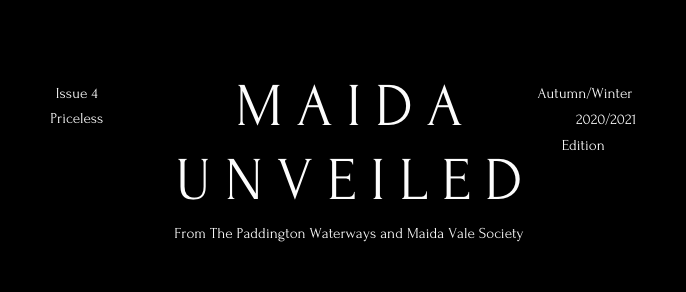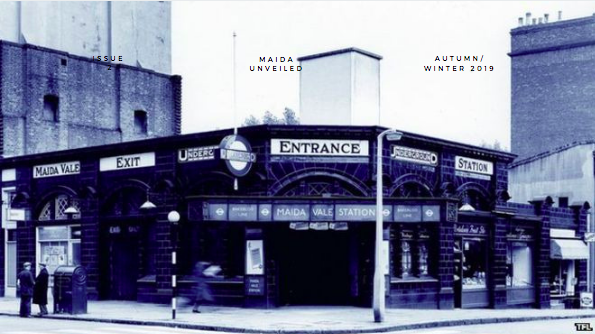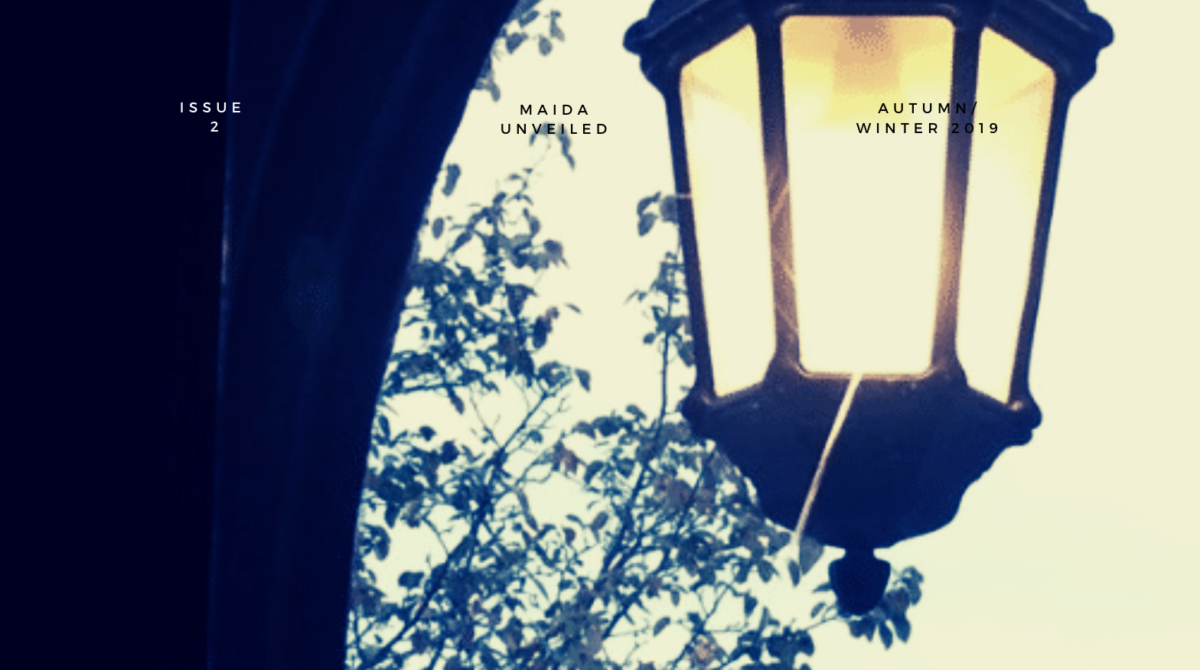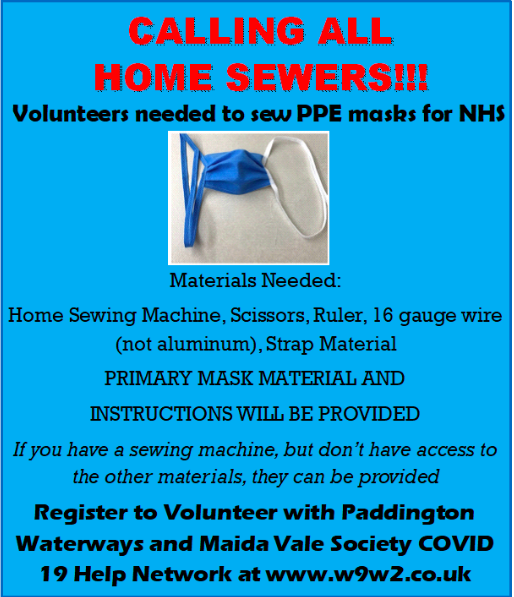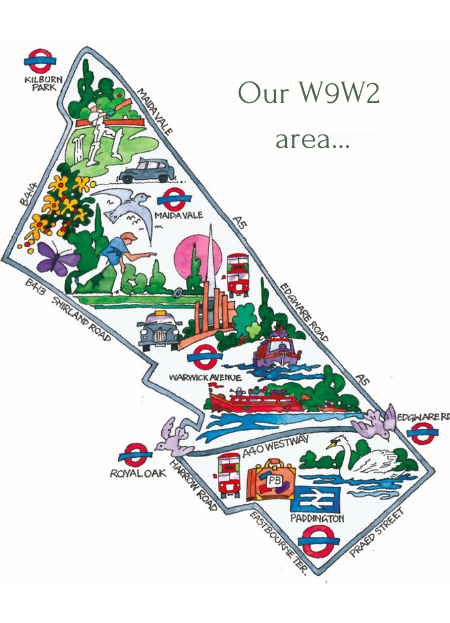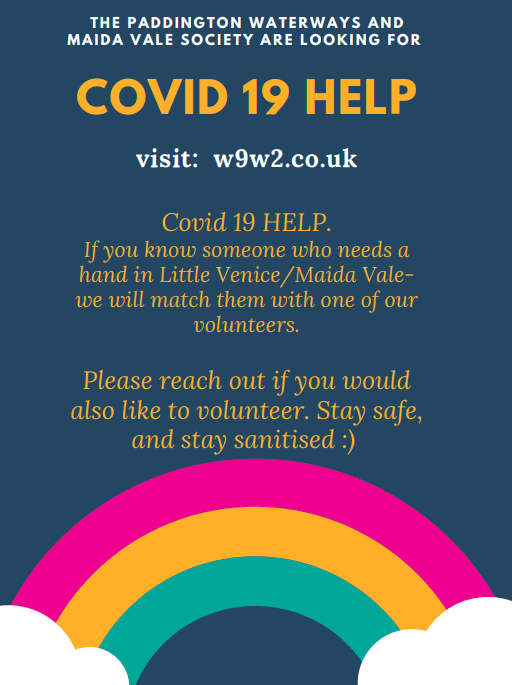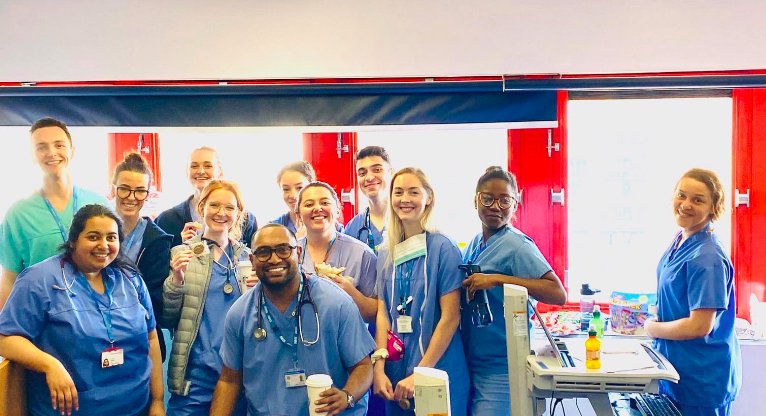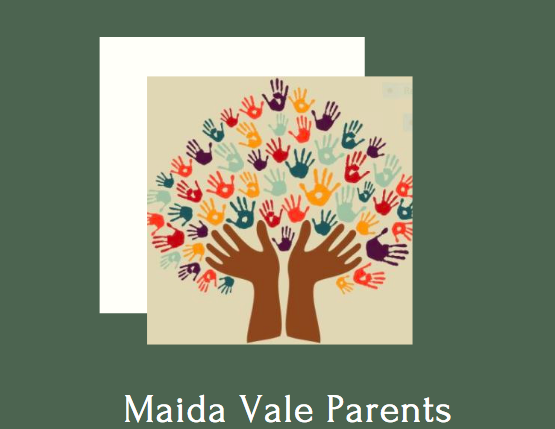The front cover of Maida Unveiled is to be VERY special this issue. In a bid to support local businesses we are compiling a mosaic of logos from all charities and small local businesses. Please do email me your logo and we will make sure it gets a space on the front page; [email protected].
Category: News
The ‘Idle’ Women
The work was arduous and unpleasant – drowned bodies and cargoes of weapons and gold bars concealed as more innocent freight.
By A. Butler
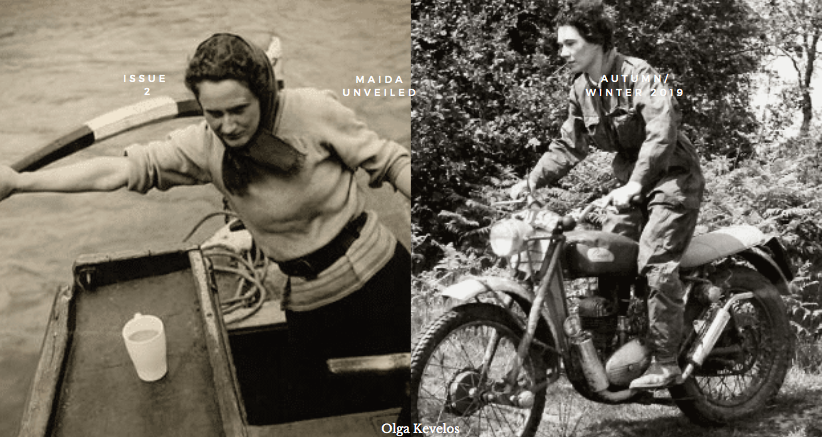
In 1943, aged 19, Olga Kevelos saw an advertisement inviting women to train for work on the canals. “She spent the next two years with all-female volunteer crews which ran the barges carrying vital war materials along the Grand Union Canal between London and the Midlands.”
She and her fellow crew members were nicknamed The Idle Women after the initials IW on their badges. Officially, IW stood for Inland Waterways, but the traditional boat people, alongside whom they worked, were jealous of the newcomers and gave them the name which stuck.
Olga Kevelos made it clear that life had been far from idle for this exceptional group of women.- “hard work with no respite at all… We worked an 18- to 20-hour day, and nobody ever stopped.” …“In all some 45 women took charge of the canal boats, which were worked in pairs, each pair crewed by three women. The volunteers would take the helm of massive barges transferring Spitfires or machine parts from the London Docks to Birmingham; on the return trip they would haul coal from Warwickshire to London.
The work was arduous and unpleasant – drowned bodies and cargoes of weapons and gold bars concealed as more innocent freight. Living conditions were rough and the girls were often cold and wet, as well as hungry (not for them the extra rations given to the Land Girls). The weather could be appalling and their craft were frequently ice bound.”.
Olga was just one of about 30 Idle Women working on the boats during the war. Many joined following a recruitment drive, in 1944, by the Ministry of War Transport who advertised in the press and women’s magazines. However, before 1942 the Grand Union Canal Carrying Company (GUCCC) at Southall gave the scheme a trial.
Girls were given 6 weeks’ training before being let loose on the canals. One of these, Eily Gayford, became a trainer of future recruits. She was older than the new girls, and known as Kitty. Her book, The Amateur Boatwomen chronicles her experiences.
Other women recruits, who have written of their time on the boats, are Emma Smith in her book Maidens’ Trip, Margaret Cornish in Troubled Waters and Susan Woolfitt in Idle Women. Unusually, Susan was a married woman. She had been married for 10 years to ‘Donald Wolfit’, as he liked to be called, when she joined up in 1944 as a result of the advert. For her, it was an escape from a marriage that was turning sour. The children were at boarding school and she wrote them many letters of her experiences. Hers was the first book published in 1947. However, many idle women remained interested in the canals.
Susan was an early member of the Inland Waterways Association (IWA). Others idle woman have attended Waterway events until recently. The scheme ended in 1946 with the return of the men after the war. Books mentioned are now published in paperback in the Working Waterways series and are available in London in the Canal Museum, near King’s Cross.
The Women Put Underground
By J Wilson
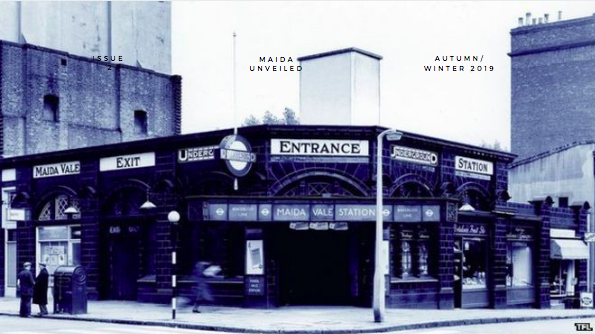
Word War One caused significant staff shortages on the London’s transport network as 17,000 tube, bus, tram employees enlisted for military service. With men fighting away from the country, it became essential for women to take on these roles, [1].
Maida Vale station opened on 6th of June 1915, (as part of the Bakerloo line extension from Paddington to Queen’s Park), and was the first station on the entire London network to be staffed entirely by women. As such, it was soon renamed the ‘Ladies Tube Station‘.
Women took over many roles which had previously been the sole domain of male workers, such as ticket collectors, lift guards, porters, painters and depot cleaners. The only position not filled by a woman was that of tube driver, a situation which remained until 1978, when Hannah Dadds became the first female to take the job, [2].
It was indeed a shock in 1915 to see women wearing a uniform and proving themselves so quickly in new roles. At that time there was still a common belief that women were incapable and did not have physical strength to conduct work outside the domestic walls.
The fame of the underground ladies became even greater when a bomb exploded a couple of yards from Maida Vale station. As the trains stopped, women escorted passengers outside the station to a nearby shelter, with calm and professionalism, without showing signs of panic or hysteria.
The role of women at such a difficult time was fundamental to keep the transport network running. Workers could not have reached factories if they did not have a tube to get on.
The female workforce continued until about 1919 when many servicemen returned to London. Two decades later, following the outbreak of the Second World War, a similar shortage of labour opened up jobs for women again and this time they took on virtually every role, including manual labour and heavy engineering.
In 2015, to mark the centenary of the opening of the station, a number of celebrations were held. These included an exhibition chronicling the history of women in transport, with staff volunteers on hand to speak with customers about the history of the station and the role of women in transport, [3].
References
[1] https://www.bbc.co.uk/programmes/p032dw9y
[2] https://www.bbc.co.uk/news/uk-england-london-33034393
[3] https://tfl.gov.uk/info-for/media/press-releases/2015/june/maida-vale-tube-station-celebrates-100th-anniversary
Pumpkin Carving Competition!

Oh My Gourd – it’s already October and with Halloween just around the corner, why not carve out some fun with a neighbourhood pumpkin carving competition? Please carve your gourd-geous pumpkins, take a spook-tacular photo from your window or somewhere locally and tag us on your Instagram or Facebook @Maida_Unveiled or email [email protected]
DEAD-line October 31st.
The winner will be published in THIS Autumn/Winter issue of Maida Unveiled.
P.S. Don’t forget to keep those leftover seeds for toasting as a healthy snack and insides for a delicious pumpkin soup. Recipe coming soon from ‘Have Kitchen Will Cook’.
Maida Ladies of the Night
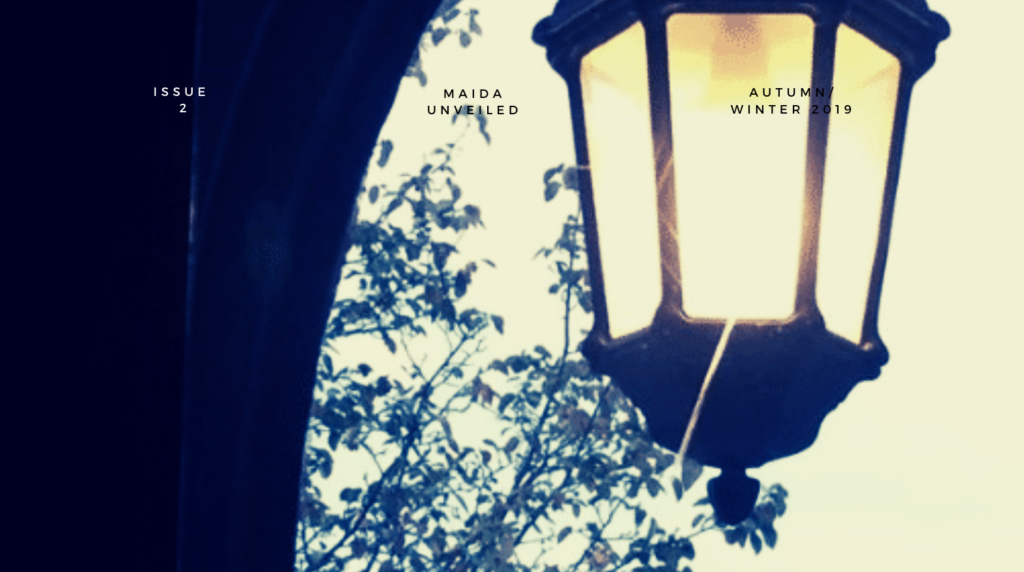
1930s post war liberation was a time where the possibility of employment was starkly unrealistic for many women. The ladies of the underground were returned back above ground to their places in the household.
For many women, the bleak reality of husbands not returning from the war efforts meant they had to be resourceful in order to survive. The houses in Maida Vale and Warwick Avenue were huge, spacious and expensive to run. This birthed the idea of renting out individual rooms.
Gradually the streets of Maida Vale and Little Venice were becoming just the right temperature for the red light scene.
Maida Vale and Warwick Avenue, for all their affluence, were never as popular, or as fashionable, as Hyde Park. It was, however, desirable, for exactly this reason.
It was a place of discretion. Gentlemen could walk down Formosa Street, or Randolph Avenue and, if a lady were to swing her keys casually by her side, it was an invitation to ‘tea’ – Mind you the tea may only last an hour (or even ten minutes).
The issue of prostitution was under scrutiny during this post-war period, yet public opinion was weighted against heavy-handed policing. The ambivalent attitude, however, did not mean that prostitution was acceptable in public. In fact, it remained a topic of opprobrium. The section of public concern focused, however, not on the policing of prostitution but upon police encroachment on the liberty of the subject. Due to this, there was a window for women to continue their work, and gain some independence by earning, and support their war-affected families.
Post-war liberation turned a little darker as it crept towards the 1960s. It was a time where the tentacles of London gangs crept into a multitude of places – including our leafy streets of Maida Vale and Warwick Avenue.
Gangs run by the likes of the Kray Brothers saw opportunity for financial gain. They rented hundreds of properties all across West London and the casual industry of independent women turned murky. It was a business run by men, and became a death sentence for women. The women would be overworked, exposed to disease, beatings and unwanted pregnancies, significantly shortening their lives.
However, things were (arguably) balanced by a London gang called ‘The Forty Elephants’. This was a gang made up by a few dozen women who, equipped with a flair for entrapment and a sense of social purpose, managed to terrorise London’s rich and metropolitan elite for the best part of a century.
The Forty Elephants were based in Elephant and Castle. There is no evidence in the Archives suggesting that they used houses specifically in our area of W9W2. However, they did hire rooms all over London to lure powerful and high profile men. This enabled them to penetrate powerful social circles whom they bribed heavily. The gang was run by Alice Diamond, she stood at 5 foot 10 and wore diamond knuckle dusters. We rather like her!
References
[1] www.british-history.ac.uk/vch/middx/vol9/pp212-217
[2]www.telegraph.co.uk/culture/books/3655365/The-seductively-seamy-side-of-1960s-London.html
[3]www.iwm.org.uk/history/what-happened-after-ve-day
[4] theculturetrip.com/europe/united-kingdom/england/london/articles/the-story-behind-londons-notorious-girl-gang-the-forty-elephants/
Can you sew?
If ‘sew’, then please email [email protected]
Are you a local restaurant/cafe and need support- lets collaborate.
Are you are a LOCAL cafe/restaurant in the Little Venice/ and Maida Vale? area. We are looking to team up and create hot meals for the staff at St Mary’s hospital and local residents who are vulnerable. The aim is to support small local businesses so please don’t reach out unless you are small and local. Thank you!
Please reach out to us at [email protected]
Maida Vale and Little Venice residents- Know someone vulnerable (locally) or want to volunteer? Please contact us…
If you know of a vulnerable resident of W9W2 or would like to volunteer please sign up to our society page and send details to this address;
Alice will match you with a volunteer/person in need to help out with food deliveries hot and cold! Many Thanks.
Please also pass on these details to anyone you know who could do with a friendly chat and some mental health support. The Therapists on the other end of the line are all trained locally in Little Venice.
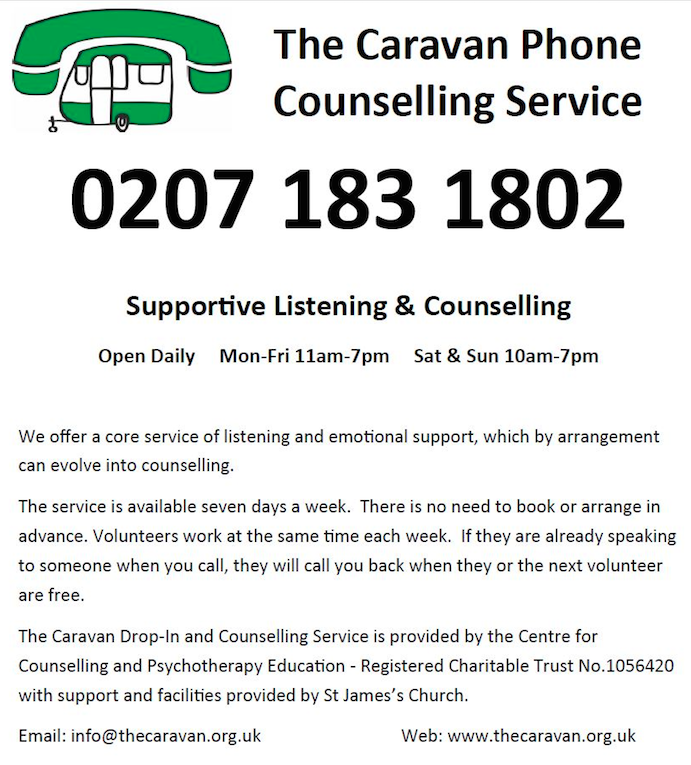
Many Thanks and stay safe!!
A BIG Thank you for your donations.
We had been working hard to put your wonderful donations to good use- with many trips to Costco and some Pizza deliveries too! With a huge thanks to Dhig’s on Formosa street – who have been invaluable with donations and transport and those who know H locally will know the of the privilege of his lovely warm nature and generous personality.
Also Thank you to Svetlana who is a local mum and she runs a great charity called Kinder Gifts, where she works closely with St Mary’s Hospital. Svetlana has been key to our operations and is very kind hearted.
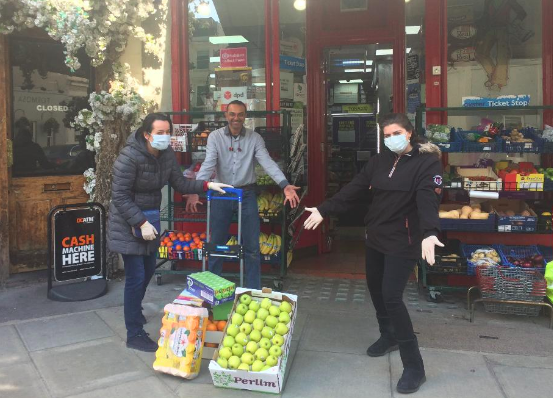
With Thank you to all who have made generous donations so far, here is the link to see how much we have raised and are continuing to do so. Please do share with friends, family and other community networks;
Direct community support to St Mary’s staff organized by Maida Vale Society W9W2
Maida Vale Parents, an online community.
Article by Alice Sinclair.
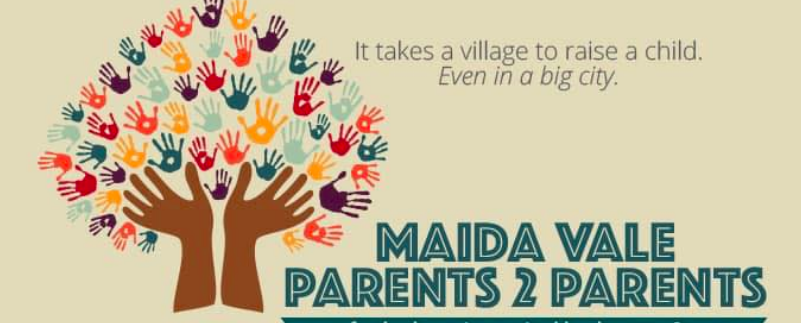
Maida Vale Parents is an (online) group for Parents and Carers in the W9 area. ..’with bumps, babies, toddlers, tweens, teens and even grandchildren’.
Counting 4.4k members, the group was originally formed in 2007 by six new mums far from their families who used to gather in the rose garden of Paddington Recreation Ground.
I met up with one of the group’s founders Eugenia Mandrali, and the current head of admin Anne-Sophie Erlandsen Olesen. We had coffee at Toast on Formosa street and they kindly lead me through the journey of MVPs.
How did the Idea came about?
Eugenia had migrated far from her hometown in Greece, away from the impending finical crisis, her family and friends, and was feeling the pressure of new parenthood.
One day, she saw a sign in the GP surgery advertising a weekly group of migrant mothers. She decided to join and thus met the ladies who were to be the founding tribe members of Maida Vale Mums…
The Mums comforted and supported each other, shared advice and soothed the wicked parental guilt we seem to all be afflicted with in one way or another. Soon, they found that that regular meeting was invaluable to their lives.
“It was very organic at the time, a sort of self help project” says Eugenia.
Maida Vale Mums Website
In 2007, the group decided to be more structured and branch out. With the help of Meghan, an American mum and owner of a successful business in the U.S. selling CDs, they created a webpage “www.maidavalemums.com”. The page was mainly used to organise parties, meet ups and share ideas of what to do in the local area.
From Maida Vale Mums to Maida Vale Parents
In 2013, for various reasons, the group had to close down abruptly and faced with 2000+ members’ impending ‘uprooting’. This is where Anne-Sophie, a forward thinking mum, stepped in and re-launched the group as Maida Vale Parents.
What makes Maida Vale Parents so special?
The famous child focused psychoanalyst Donald Winnecott spent much of his working life just down the road from us at St Mary’s hospital. He famously believed that the ‘Mother’ in the archetypal sense had to be ‘good enough’, providing the environment was contained and safe and transition was gently facilitated.
This is exactly why MVP’s as a group is so successful. It is a welcoming environment for all Parents. What sets it apart from other groups is the safe container created by the admins. Much like kids need a safe container and boundaries to thrive, as do online groups. The key to its success lies behind closed doors with the admin.
It is a tightly run ship with only a handful of moderators who make sure that the group rules are always respectfully enforced: for parents but not just about parenting; let’s be kind and civil; no ads whatsoever; no hate speech, bullying or discrimination; no Fake News; no Justice by Social Media; and What Happens on MVP Stays in MVP.
This has made the group a very supportive, non-judgmental and extremely dynamic community. The saying goes that ‘Even if you leave Maida Vale, you never leave Maida Vale Parents 2 Parents’, which is why members hail as far as Australia, US and Asia by now. And out of 4400+ members, more than 3800 are Active Members, meaning they have Viewed, Commented, Posted or Reacted in the last month alone.
Since Anne-Sophie took over, MVP2P has doubled in size. Its members, like an ever changing team of volunteers, have also organised many IRL (In Real Life) events such as Family Mini-Festivals in Pad Rec, Xmas Drinks, Mid-Week Drinks and even their first MV Dads’ Drinks.
But its core offering is still online support and advice to the many very diverse members, who represent quite accurately an area of London where high wealth and poverty exist side by side, but where all are local parents. And while there are no MVP Weddings (that we know of) there are certainly a plethora of true MVP Friendships.


